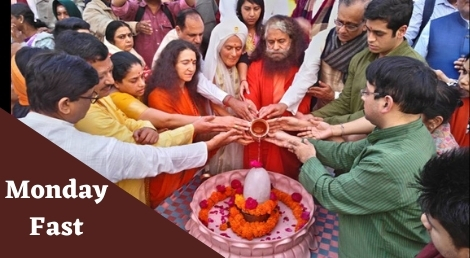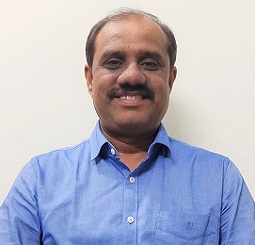Monday Fast
Monday Fast Procedure
As it is well known, the Monday fast is observed in the name of Lord Shiva. The word somvar comes from the Sanskrit word sank, which meaning "moon" or "Hindu deity moon." Lord Shiva is also known as 'Someshwar' because of the crescent moon that adorns his hair. Lord Someshwar is done on Monday to satisfy Someshwar, and this also fulfils his demands. Even though this fast is observed on any Monday, the Hindu calendar mentions a special calendar in which Monday is particularly popular on the New Moon Day. Yes, the first Monday after the new moon in any month is quite popular. Fasting on Monday is considered quite good when a moon day or new moon does not fall on Monday. It's also known as 'Somvati Amavasya.'
In different parts of India, the Monday fast is observed in various ways. According to the Shravan and the Gregorian calendars, the Hindu month performs in the northern states of Maharashtra, Gujarat, and India from July to August. Hindus born on Kartik Monday are regarded sacred in the South Indian states of Karnataka and Andhra Pradesh. Kartigai (November-December) in the Tamil month of Tamil is considered auspicious and is celebrated as 'Kartikai Somavaram' in the Tamil Nadu state of India.
Somvar Vrat Katha
Once upon a time, Shri Bhoothnath Mahadev and Mother Parvati decided to visit the Mrityu Log, so they travelled to Amravati, a prosperous city in Vidarbha with a joyful people. They began to live in a comfortable Shiv Mandir built by the citizens of the city. 'Who do you think will win this turn?' Goddess questioned the temple priest once while playing Chaucer. Lord Shiva was his response. Goddess Parvati, on the other hand, triumphed. Goddess Parvati was enraged, and she afflicted the Brahmin with the disease Leprosy for lying.
Apsaras from Swarglok came to visit the temple after a few days. They were intrigued when they saw the cursed priest suffering from leprosy. Apsaras desired to know more about the disease. The full story was told by the priest. The Apsaras proposed that the priest observe Solah Somvar Vrats as a solution. They explained the significance of the Vrat as well as the Vrat procedure to him. The priest observed the Vrat, and Lord Shiva was compelled to grant all of his wishes, as was predicted. The Apsaras then went back to Swarglok. The priest was cured of his illness after completing the fast.
When Goddess Parvati and Lord Shiva returned to the temple later, Goddess Parvati was astonished to see the priest had been cured. She enquired of the priest about the cause for this. The priest explained the entire Katha to her.
After witnessing the fast's wonderful effects, Parvati ji decided to fast in order to reclaim her deluded son Kartikeya, and her wish was granted. Karthikeya, her enraged son, became docile. This started a chain reaction. Kartikeya enquired as to the cause of his shift in attitude.
Kartikeya observed the fast after comprehending the significance of it. Kartikeya's wish to see an old buddy was granted. He was able to meet his friend as a result of the fast's impact. Kartikeya told his companion, a Bharmin, about the fast when he asked him about it. His acquaintance noticed the same thing when it came to the desire to marriage. The Brahmin travelled to another state for a Rajkumari's Swayamvara. The King declares that the princess shall marry the man to whom she bestows a garland. Fortunately for the Brahmin, the princess bestows a garland onto him.
The monarch kept his word and delivered on his pledge. The princess was then informed about the Katha by the Brahmin. The princess, too, had a son as a result of her quick observation. Finally, the prince followed the same fast and ascended to the throne.
Monday Fast Rituals
Monday morning fasting begins at sunrise. Those who observe this fast should focus on Lord Shiva first thing in the morning. Devotees then offer their prayers to Lord Shiva and Goddess Parvati after taking a holy bath. On this day, the person who is fasting should also wear a white dress.
Apart from that, this day is dedicated to the worship of God Shiva. On this day of fast, believers also offer Lord Shiva Bilvah and Bhasma (Vibhuti), which are considered to be Shiva’s favourites. Nayadya, or special food offerings, are also made on this day. Giving white flowers to Shivling is also very important.
What One Can Eat On Monday fast?
On Monday, the narrative is read later in the evening. The followers repeat the mantra 'Om Namah Shivaya' throughout the day. On Monday, the person who is fasting can fast enough or eat lunch once in the afternoon day. While the devotee might consume Sabudana Khichdi or fruits to keep a partial fast.
What One Can Do On the Monday Fast?
After performing customary morning rituals and prayers, the devotees break their fast the next day. After that, divide the Prasad among the other devotees. Devotees who visit the temple on Monday typically visit Lord Shiva's temple in the morning and evening. If this is not possible, prayer can be performed in their home.
Precautions to be Observed
· On the day of the fast, the devotee should rise before sunrise.
· Lord Shiva should not be offered Ketki flowers.
· Tulsi shouldn’t be offered to Lord Shiva.
· Kumkum and Sindoor are not to be utilised.
Benefits of Monday Fast
Everyone benefits from the fast on Monday, but there is one exception that you should be aware of. Explain that this is the fast that young single girls observe in order to find a decent husband. Whereas married couple observe the fast and pray to the holy couple of Lord shiva and mata Parvati, wishing for a happy family. According to legend, the lord of the Somnath Varta receives blessings from all the world's delights. This fast ensures that there’s always peace and happiness in the home.
-
Talk to Astrologer On Call
Starting from 12 per minute only
-
Get Detailed Manual Report
Starting from 250 only
-
Read Article
Read Astrology Articles
- Vedic Astrology,...
- Exp - 12 Years
- English, Hindi
- K.P. Astrology, V...
- Exp - 25 Years
- English, Hindi
- Vedic Astrology
- Exp - 25 Years
- English, Hindi



